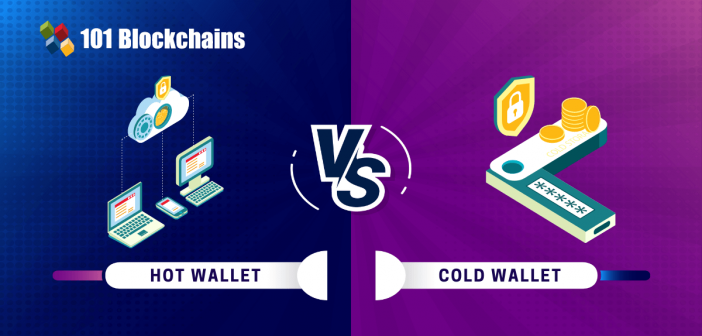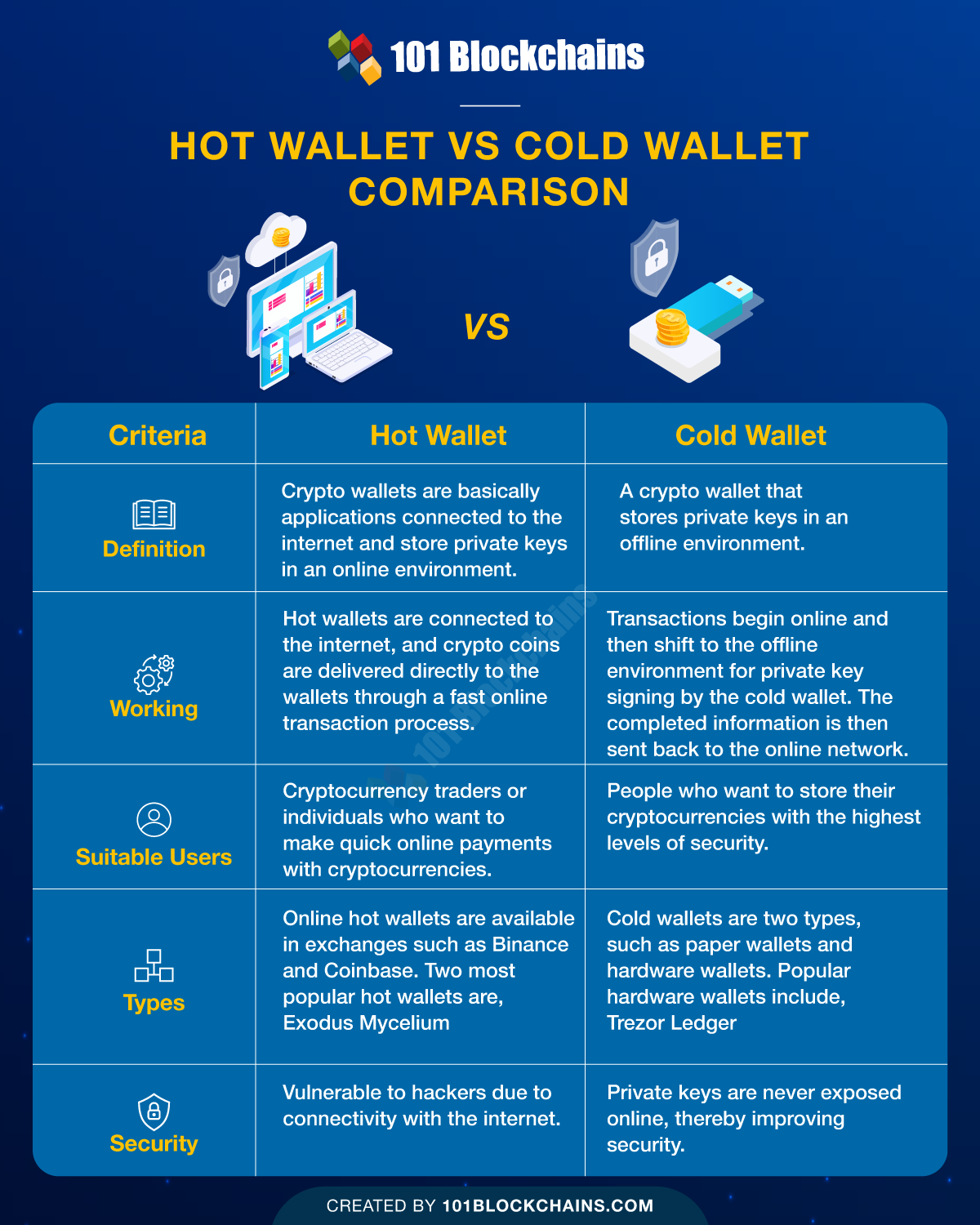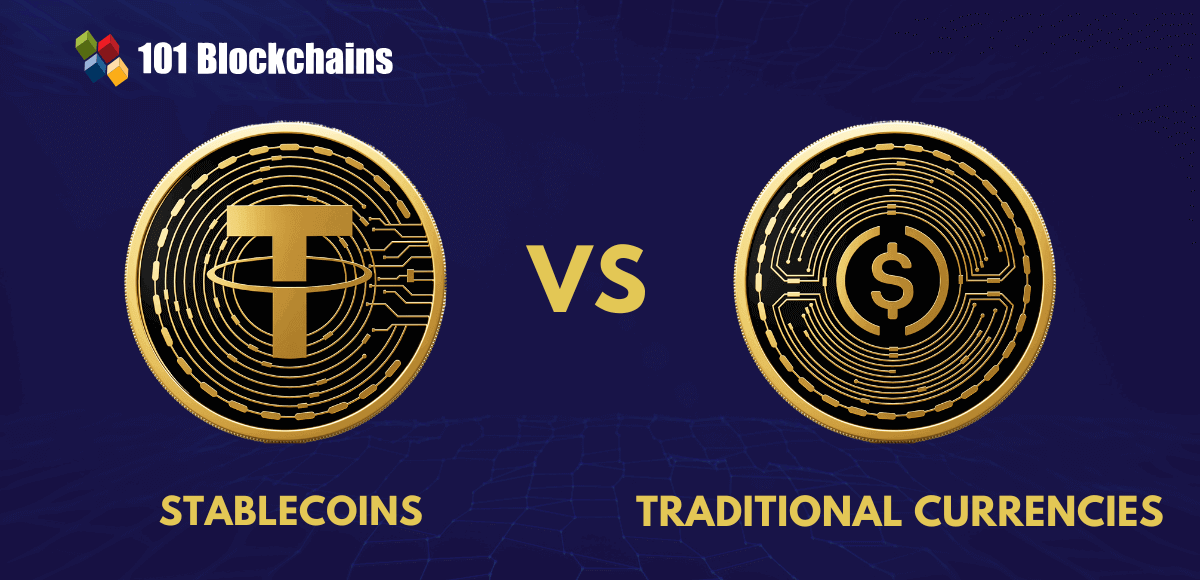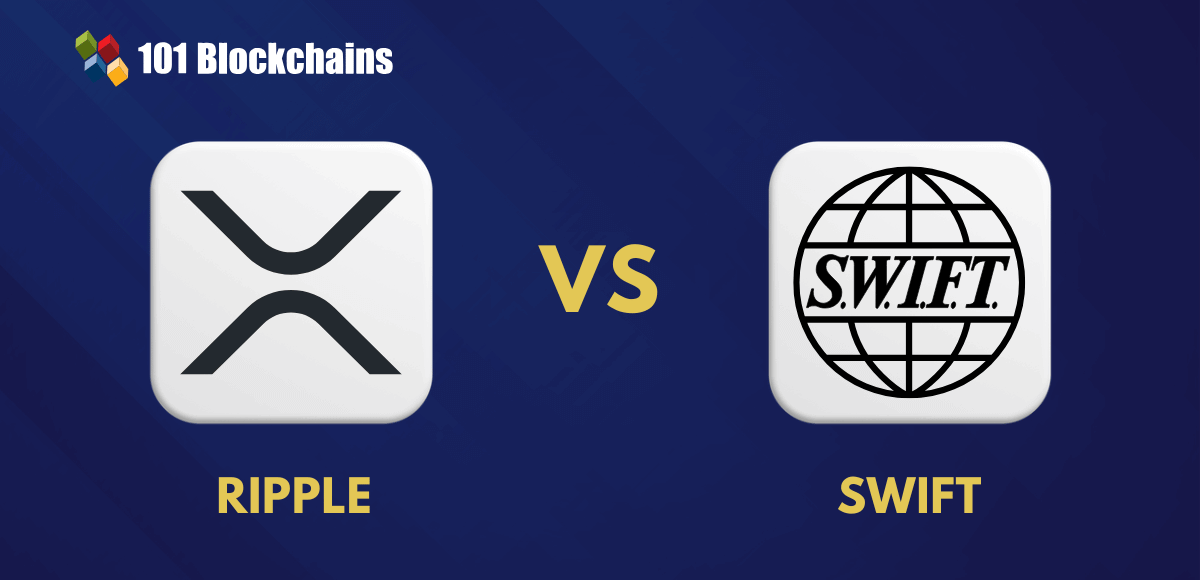Learn how blockchain truly works, master key definitions, and uncover what makes smart contracts so "smart." Dive into the fundamentals, gain valuable insights, and start your blockchain journey today!

- Comparisons
Diego Geroni
- on October 28, 2021
Hot Wallet vs Cold Wallet Comparison
Any individual familiar with the world of cryptocurrency must be aware of the ongoing debate regarding hot wallets and cold wallets. As a matter of fact, the selection of an alternative from the hot wallet vs cold wallet comparison is quite essential. Generally, new traders in the domain of crypto leverage ‘full service’ wallets for participating in crypto trades.
However, a one-size-fits-all solution is not suitable for other serious investors. The word wallet basically refers to something where you store your cryptocurrency. So, what is a major difference between a cold wallet and a hot wallet? Let us find the difference between cold wallets and hot wallets with respect to the domain of cryptocurrency in the following discussion.
Want to become a Cryptocurrency expert? Enroll Now in Cryptocurrency Fundamentals Course
What is a Crypto Wallet, and why is it Necessary?
Before diving into a description of hot wallets and cold wallets, it is important to understand the working of a crypto wallet. As evident already, wallets store assets. Crypto wallets interact with blockchain by leveraging a special algorithm. The algorithm helps the crypto wallet in creating a unique private key for the crypto asset it supports. A private key basically refers to a long set of numbers invulnerable to brute force attacks.
Furthermore, the wallet also creates a public key necessary for decrypting the transactional data. The decoded information could help a crypto network in the verification of the private key without any visibility. The public key is also responsible for generating wallet addresses which is important information for other parties to send crypto assets to the concerned users. Users could just access the crypto assets in their wallets by using private keys.
Want to get an in-depth understanding of crypto fundamentals, trading and investing strategies? Enroll now in the Crypto Fundamentals, Trading And Investing Course.
Definitions of Hot Wallets and Cold Wallets
The most important thing required for a cold wallet vs hot wallet debate is the definition of both types of crypto wallets. A cold wallet is basically a crypto wallet that is responsible for storing private keys in an offline environment. The two common variants of cold wallets include paper wallets and hardware wallets.
Paper wallets are printed pieces of paper containing public and private key pairs in the form of QR codes. In the case of hardware wallets, you have a physical device for storing the private keys for multiple crypto assets. The physical device in the hardware wallets would also be responsible for creating wallet addresses.
The hot wallet is exactly the opposite of the cold wallet in its definition. Cold wallets operate in offline environments, and hot wallets connect to the internet. Hot crypto wallets are generally software you could find on a mobile device, a cloud server, or a laptop. Cloud wallets or web-based hot wallets are available on online platforms under the control of centralized entities. Desktop and mobile wallets work as apps that users can download to a local electronic device. Interestingly, the desktop and mobile variants of hot wallets are non-custodial.
Start learning about Cryptocurrencies with World’s first Cryptocurrency Skill Path with quality resources tailored by industry experts Now!
Differences between Hot Wallet and Cold Wallet
Please include attribution to 101blockchains.com with this graphic. <a href='https://101blockchains.com/blockchain-infographics/'> <img src='https://101blockchains.com/wp-content/uploads/2021/10/Hot-Wallet-vs-Cold-Wallet-Comparison.png' alt='Hot Wallet vs Cold Wallet='0' /> </a>
Any individual aspiring to use cryptocurrency would be worried about the question of ‘Should I use a hot or cold wallet?’ as they are practically essential for storing crypto assets. Now, many experts point out that none of the wallets are better than the other, and each one is suitable for a certain type of activity. Wallets are responsible for tracking digital assets and are generally completely digital, only with exception of come cold wallets. Hot wallets and cold wallets help users in storing, sending, and receiving tokens.
The most basic difference in the hot wallet vs cold wallet comparison is evident in the fact that cold wallets are not connected to the internet. On the other hand, hot wallets provide better accessibility alongside a facility for connectivity from the trading platform you use, like a Coinbase wallet. As a result, a hot wallet could ensure improved ease of use in transactions throughout the internet. In addition, different hot wallets are also available free of cost while also posing a vulnerability to hackers.
On the other hand, a cold wallet provides storage that is not always online. For example, paper wallets and even an offline computer could serve as cold wallets. However, traders choose specific hardware tailored for storing cryptos, such as a USB or a hardware crypto wallet. The primary advantage identified with cold wallets is the improved level of security, with limited avenues for accessibility.
Only the device could authorize or sign a transaction, even when connected to the internet, thereby ensuring security for the crypto assets of the users. Cold wallets preset a primary setback in the form of restrictions in the accessibility. Users have to generate a key for every transaction, which can be a repetitive process.
Build your identity as a certified blockchain expert with 101 Blockchains’ Blockchain Certifications designed to provide enhanced career prospects.
-
Working of Hot Wallets and Cold Wallets
The primary differences between a hot wallet and a cold wallet clearly showcase the upsides and setbacks of connecting with the internet. Now, the working of the hot wallets and cold wallets could shed some more light on the differences in the cold wallet vs hot wallet comparison.
Hot wallets are basically tailored for flexible storage and accessibility for crypto assets. Miners and digital currency traders could use hot wallets to have their coins delivered directly to online storage. Furthermore, a hot wallet also offers a straightforward method for making payments with cryptocurrency. The public and private keys stored on the internet or on a device, which is connected to the internet, are vulnerable to hackers.
On the other hand, a cold wallet is not connected to the internet, which obviously means it’s ‘offline.’ Cold wallets are nothing but specific hardware such as a USB or a hardware wallet, which is more or less like a USB. The cold wallets also feature public keys and private keys. Owners can use private keys to access their assets. The most important difference in the working of cold wallets from that of hot wallets is that private keys for the cold wallet are not stored on the internet.
Crypto transactions with a cold wallet generally involve a signing process, which involves a few keys. The transactions with cold wallets start online and then shift to an offline mode where the digital signature process takes place. After completion of the signing process, the complete information of the transaction goes back to the online network. Basically, the private key does not go online.
-
Who should Use Hot Wallets or Cold Wallets?
The question of ‘Should I use a hot wallet or cold wallet?’ also implies a possible point of difference between them. It is important to compare the crypto wallets on the basis of the target audience suitable for using them.
Hot wallets are generally attractive for people who are frequently involved in online cryptocurrency transactions. For example, cryptocurrency investors could find a hot wallet suitable for completing transactions at a faster rate. Apart from purchasing and selling cryptocurrencies on the exchange, hot wallets also provide a cryptocurrency address. Therefore, if you are sure that you will have a lot of cryptocurrency transactions with exchanges and individuals, then you can opt for hot wallets. On the other hand, storing large amounts of crypto assets in hot wallets makes them a vulnerable target.
It is clearly evident that a cold wallet vs hot wallet comparison goes in favor of cold wallets for storing large amounts of crypto assets. Cold wallets offer a better and secure environment in comparison to hot wallets. Certain exchanges offering hot wallets, like Binance, have also restricted the storage capacity for encouraging the use of cold wallets for improved security. So, a cold wallet might be the right choice for you if you want to store your cryptocurrencies with safety.
-
Types of Wallets
The final point of difference in the hot wallet vs cold wallet comparison would point out the types.
Apart from hot wallets on exchanges such as Binance and Coinbase, you can find particular hot wallets for crypto assets or applications. As of now, there are two most popular types of hot wallets you can use for online crypto transactions. They are Exodus and Mycelium.
The easiest type of cold wallet you can find is the paper-based wallet. Just write your private keys on a piece of paper or print a QR code for signing transactions with cold wallets. On the other hand, the most popular types of cold wallets in circulation right now refer to hardware wallets. The notable examples of hardware wallets used for crypto assets presently include Trezor and Ledger.
Curious to know the impact and in-depth understanding of crypto compliance in businesses? Enroll now in Crypto Compliance Fundamentals Course.
Final Words
The concluding inference from the debate on ‘What is a major difference between a cold wallet and a hot wallet?’ presents many interesting highlights. First of all, it is quite clear that crypto wallets are completely dependent on the type of transaction you want. For example, if you want to make quick transactions and payments with cryptocurrencies with limited assets, then you can choose hot wallets.
However, cold wallets secure better marks in terms of security for cryptocurrencies. Therefore, you can clearly notice the variety of concerns you need to encounter for investing in cryptocurrency. Start exploring more about the domain and find which wallet would be suitable for your needs right now.
*Disclaimer: The article should not be taken as, and is not intended to provide any investment advice. Claims made in this article do not constitute investment advice and should not be taken as such. 101 Blockchains shall not be responsible for any loss sustained by any person who relies on this article. Do your own research!






